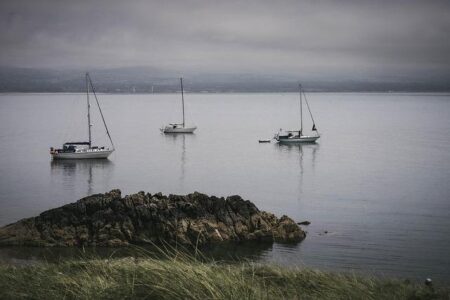Spain has taken a bold leap forward by championing the creation of a joint EU army, aiming to strengthen European defense unity in the face of the escalating Greenland crisis and mounting geopolitical tensions
Browsing: European Union
Franco-German tensions are rattling the EU’s unity, threatening its strength to push back against Trump’s policies. Conflicting priorities between Paris and Berlin could weaken the bloc’s impact and sway on the global stage
French President Emmanuel Macron is gearing up to urge the EU to unleash a formidable trade ‘bazooka’ in response to the US tariffs imposed by the Trump administration, signaling a daring new phase in the transatlantic trade showdown
President Trump has just announced a 10% tariff on imports from eight European countries, ramping up trade tensions as negotiations to purchase Greenland continue, NBC News reports
The UK’s Labour Party is gearing up for a renewed battle over EU relations, taking a strong and decisive stand to reshape ties in the post-Brexit era. This bold move promises to ignite intense political debates as the stage is set for critical upcoming negotiations
Brazil’s President Lula celebrated the groundbreaking EU-Mercosur trade deal as a revolutionary step for economic ties between Europe and South America, despite not being present at the signing ceremony. This historic agreement is set to unlock exciting new opportunities and deepen connections across continents
Europe is facing rising challenges in protecting Greenland amid soaring Arctic tensions. France 24 explores the daring strategies European nations are preparing to deploy to secure this crucial territory against growing geopolitical threats
Spain’s final 12-month EU-harmonised inflation rate remained steady at 3.0% in December, highlighting a robust economic recovery amid the persistent inflation challenges sweeping across Europe
France and Germany have joined forces in a groundbreaking European troop deployment to Greenland, strengthening Arctic security amid rising geopolitical tensions. This collaborative mission highlights Europe’s growing commitment to safeguarding this crucial and strategic frontier
Germany and France are caught in a fierce showdown over the U.S. arms purchase, unfolding amid a colossal €90B EU loan to Ukraine. This intense clash is igniting tensions within the bloc as allies wrestle with defense spending priorities and how best to back Ukraine in its relentless fight
Germany’s finance minister called on the EU to adopt a bolder stance amid shifting global dynamics, emphasizing the urgent need for strong economic policies to safeguard the bloc’s strategic interests in an ever-changing world order
EU states have just given the green light to the Mercosur trade deal, triumphing over strong opposition from France and aiming to boost economic ties across South America. Yet, the agreement remains a hot topic, as critics continue to raise serious environmental and labor concerns
Italy and France are calling on the EU to jumpstart dialogue with Russia, emphasizing the critical need for renewed diplomatic engagement with the Kremlin amid ongoing tensions, reports TVP World
After decades of negotiations, the fate of the EU-Mercosur trade deal now teeters on a knife’s edge. France and Italy are pushing for stronger environmental and economic safeguards, challenging key terms and bringing final approval to a standstill
The King of Spain has raised a powerful warning about the growing danger of “dismantling” the vital transatlantic bond between Europe and the US, urging a renewed commitment to protect this indispensable geopolitical and economic alliance
France boldly stakes its claim to reject U.S. demands, signaling a powerful shift in Europe’s diplomatic stance. This move highlights escalating tensions and a resolute drive for greater independence in transatlantic relations
France will stand firmly against the EU-Mercosur trade agreement, President Macron declared, emphasizing deep environmental and economic concerns. This bold position signals major challenges ahead for the deal’s approval within the European Union
Germany’s alcohol prices remain significantly lower than the EU average, making it one of the most budget-friendly destinations to enjoy a drink. As prices rise across many other member states, this growing price gap is driving distinctive consumer behaviors and sparking notable changes in the European market landscape
European allies have come together with unwavering resolve, forging a landmark pact to enhance Ukraine’s defense. This bold agreement ramps up military aid and intelligence sharing, signaling a powerful leap forward in their united commitment amid the ongoing conflict
Over the past 40 years, Spain and Portugal have transformed from isolated economies into vibrant, dynamic powerhouses within the EU-driving growth, modernizing infrastructure, strengthening democratic institutions, and reshaping their influence across Europe




















